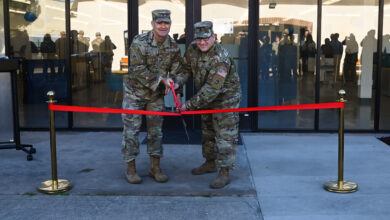US Space Force Confirms 21 Upcoming Launches
The US Space Force has announced 21 new launch missions through 2024 under the National Security Space Launch (NSSL) program.
The missions were awarded to two companies, with United Launch Alliance (ULA) winning 11 assignments and SpaceX receiving 10.
A second SILENTBARKER satellite launch will be included, being lifted to geosynchronous orbit to meet the Department of Defense and intelligence community’s space protection requirements.
The latest phase includes US Space Systems Command’s (SSC) 48th space mission amid a recent US push for a stronger space presence.
ULA for Reconnaissance
ULA will conduct five satellite launches for the National Reconnaissance Office, some of which are classified.
The company will also test a nuclear thermal rocket for the Defense Advanced Research Projects Agency.
SSC Senior Materiel Leader Col. Chad Melone explained that the command continues to plan a stronger presence in space by adding more defense capabilities.
“We maintain a close partnership with our mission customers and our domestic launch industry to protect our nation,” he said.
“Our combined team remains dedicated to delivery of critical assets to our warfighters as we complete this phase of the NSSL program and embark on NSSL Phase 3 starting in FY25.”
SpaceX Reinforces Missile Protection
Meanwhile, SpaceX’s missions focus on the SSC’s push to enhance multi-domain defenses.
The company will launch a Next-Generation Overhead Persistent Infrared (Next-Gen OPIR) satellite, which will be used as a missile warning system.
The upcoming launches round up a total of 48 missions over SSC’s five-year Phase 2 contract, a significant increase over the 34 missions leading up to the program.
“The increase in launch tempo is a clear reminder of how vital space-based capabilities are in providing our warfighters and our nation’s decision-makers with the information needed to stay ahead of and to deter adversarial forces,” SSC Program Executive Officer Brig. Gen. Kristin Panzenhagen explained.












